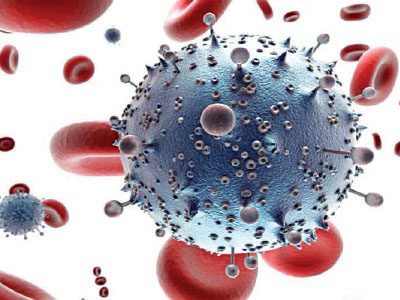Russia’s AIDS epidemic is worsening and at least two million people are likely to be infected with HIV in about five years as the virus increasingly affects the heterosexual population, the country’s top AIDS specialist said on Thursday.
Russia has registered more than 930,000 people with HIV, of whom some 192,000 have died, said Vadim Pokrovsky, head of the country’s state AIDS centre.
Pokrovsky said he expected those numbers to rise to about one million by the end of the year or early 2016.
He estimated that there would be some two million registered HIV carriers and some three million Russians with HIV in total in about 4-5 years unless drastic measures are taken to halt the spread of the virus.
“We expect the numbers to double,” Pokrovsky told AFP in an interview.
“This means that the measures being taken now are ineffective,” he said, noting even if the government takes drastic measures to curb the epidemic now the HIV rate would still be rising for the next two to three years “by inertia.”
“This is an infection that affects people aged 25-35,” Pokrovsky said. “They die when they are around 35. And they could have worked for a long time.”
“It’s a serious cause of death for Russians, young Russians,” he added.
More than 60 percent of those affected are believed to have used drugs at least once.
But Pokrovsky said that heterosexual intercourse appears to be the most common route of HIV transmission in Russia, drawing parallels with Africa, the epicentre of the HIV/AIDS epidemic.
Nationwide adult HIV prevalence is around 1 percent in Russia.
Some of the worst affected locales include the Volga city of Tolyatti with a whopping 3.0 percent prevalence and the Irkutsk region in Siberia with 1.5 percent, Pokrovsky said.
Since the start of the worldwide epidemic, about 78 million people have been infected by the human immunodeficiency virus (HIV), which can destroy immune cells and leaves the body exposed to tuberculosis, pneumonia and other opportunistic diseases.
Thirty-nine million have died, according to UN estimates.
Anti-retroviral drugs, invented in the mid-1990s, can treat infection, but cannot cure it or prevent it.
ngrgaurdiannews.com














